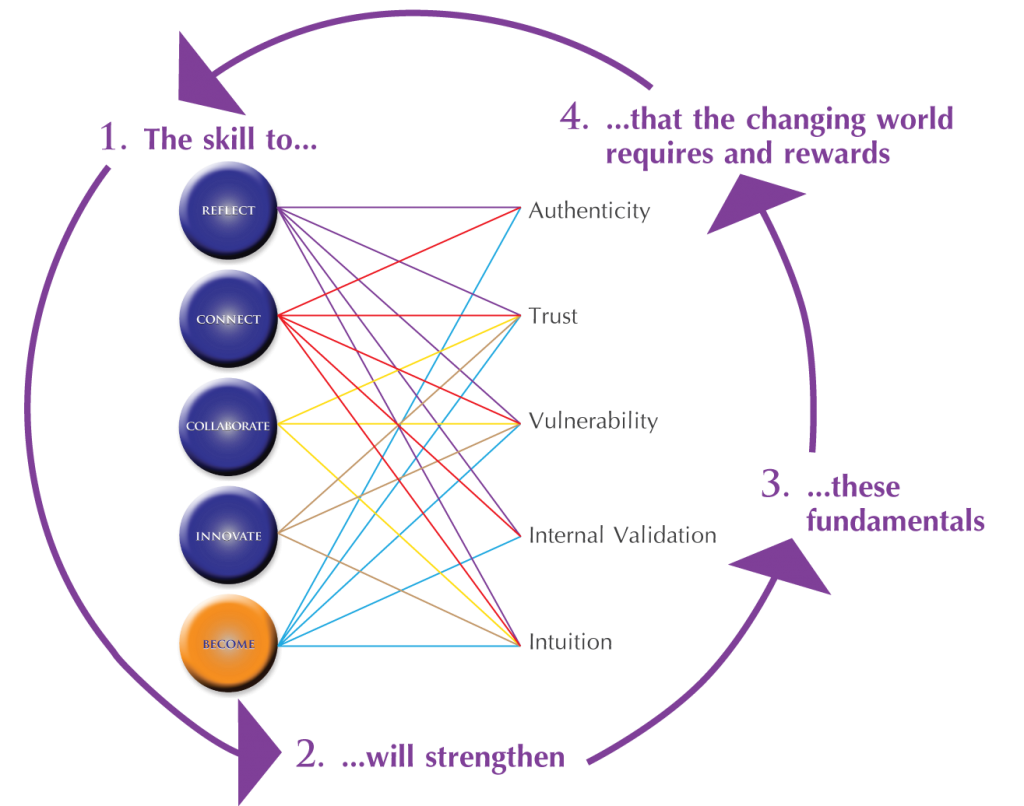how to be authentic in the changing corporate world
The ‘embers’ model facilitates what the changing world is rewarding – authenticity, trust, vulnerability, internal validation and intuition. By doing so, it is weaving a vast, interconnected body of support for the way ahead. How is your business demonstrating evidence of being a part of the changing future?
What is authenticity when applied to business?
Authenticity means alignment to truth, one which will serve all equally. An authentic corporate entity is one that is in alignment with its true purpose. Authentic leaders walk the talk of the purpose because they believe in it, and while doing so attract strong and committed followership as there can be no doubt of the validity of action, reliability of support and dedication to the direction. Authentic leaders are able to ask the right questions, face complex and unique situations in changing times, gain trust quickly and remain focused and committed to results.
What will a stakeholder (customer, supplier, investor, employees) feel and gain from this?
An authentic leader is at the core of a productive, transparent and co-creative work environment alongside the workers. He/She builds customer-centric systems, serving all equally.
Both internal and external stakeholders benefit from authentic leadership as there is much less time wasted on politics, fear, covering one’s back, creating excuses and clarifying intentions, allowing all energy to be funneled into constructive and essential activity.
Whilst the purpose of authenticity is not to gain a competitive advantage, this will be a bi-product. Why?
Authentic Leadership of both self and others will most definitely be a competitive advantage, because people will want to be engaged, focussed and ‘on the bus’. The resulting word of mouth will be both convincing and influential. People will be feeling the difference.
What can a leader do to really be authentic?
For this question to exist, there is most likely an attitude of, and need for, ‘doing’. Authenticity is really about ‘being’, ‘being’ who you are, and not being what a set of rules, an expectation of others, a norm says you should be. To really be authentic, some things may need to dissipate around you: titles and an imbalance of power would need to give way to an attitude of service. Transparency will need to supersede suspicion, whilst trust and intuition would emerge. Authenticity is about alignment between contribution for all, values and value added.
business example of authenticity bringing value
coming soon
business example of authenticity bringing value
coming soon
If you would like an ‘embers’ facilitator to take you and your team through the process we have several workshop levels to choose from. Contact us for a consultation and ‘readiness’ evaluation.
Skills for 21st century leadership include reflection and connection, collaboration and innovation leading us to ‘become’ and evolve beyond current barriers. However achieving that in isolation of what will serve the corporate future may be futile. The corporate world is needing and rewarding authenticity, aligning beliefs and values, bringing ethical, service-based and transparent approaches to business, and ensuring less wasted time and energy – great return on investment for any corporation!
One example of business with credible evidence that is impacting positively whilst creating the future includes:
- Whole Foods Market lead by the evolved leader Mr John Mackey
Let us know when you see or hear of more great examples!








